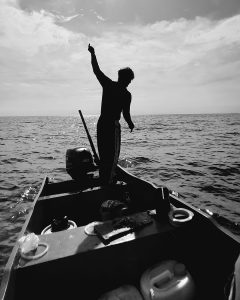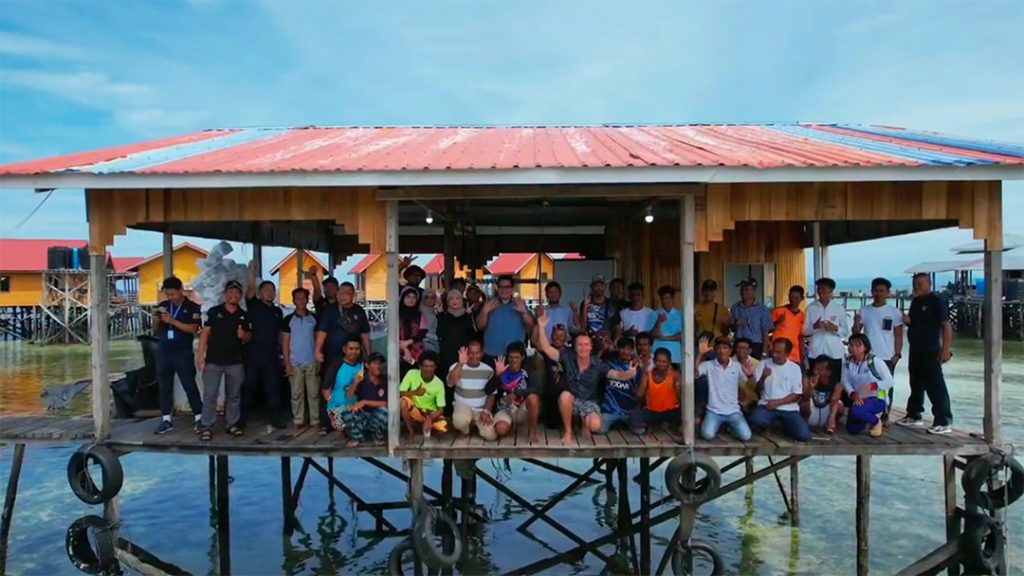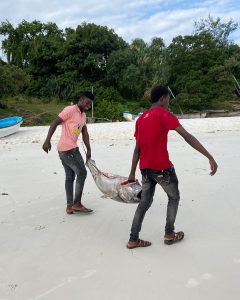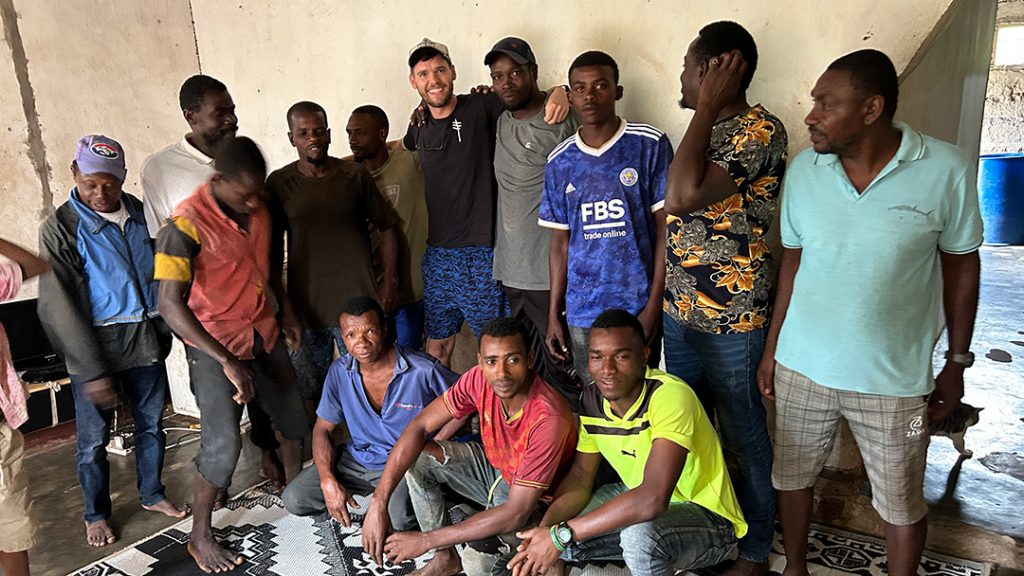By helping to protect ecosystems and safeguard livelihoods, IPNLF hopes to raise greater awareness of the important contribution these fisheries make to sustainable development ‘where no one is left behind’
The International Pole and Line Foundation (IPNLF) is the charity known to support, develop and promote one-by-one tuna fisheries across the globe. The fisheries they are connected to are small-scale, use low-impact fishing methods, and produce a wide range of social and economic benefits that are retained by local coastal communities. Their work covers tuna fisheries in the Atlantic, Indian and Pacific oceans with projects currently implemented in Indonesia, Maldives, Azores, Brazil, Cape Verde, South Africa, and Oman, amongst others.
Recently, IPNLF expanded their geographic focus by visiting Malaysia and Tanzania, looking at potentially rolling out new projects in these countries in line with the support they have received under the Common Oceans Tuna Project, which aims to ensure that tunas are fished more sustainably by mobilising a global partnership in support of responsible tuna fisheries management and the conservation of biodiversity in the ocean areas beyond national jurisdiction (ABNJ).
 In Mabul Island, Sabah, Malaysia, IPNLF’s Fisheries Director Roy Bealey, experienced firsthand the intricacies and complexity of the local fishing practices and gained direct insights into local fishers’ obstacles and their aspirations for a more sustainable future. Many of these remote communities face similar challenges such as a scarcity of ice to preserve the quality of their catch, inequitable market dynamics, and limited control over the value chain. IPNLF’s experience in working with remote fishing communities in other parts of the world where they face similar challenges, opens up opportunities for knowledge exchanges and solutions-based technical innovation to combat climate change, reduce post-harvest losses and improve fish quality, ultimately benefitting these small-scale tuna fisheries.
In Mabul Island, Sabah, Malaysia, IPNLF’s Fisheries Director Roy Bealey, experienced firsthand the intricacies and complexity of the local fishing practices and gained direct insights into local fishers’ obstacles and their aspirations for a more sustainable future. Many of these remote communities face similar challenges such as a scarcity of ice to preserve the quality of their catch, inequitable market dynamics, and limited control over the value chain. IPNLF’s experience in working with remote fishing communities in other parts of the world where they face similar challenges, opens up opportunities for knowledge exchanges and solutions-based technical innovation to combat climate change, reduce post-harvest losses and improve fish quality, ultimately benefitting these small-scale tuna fisheries.
“Site visits like these are an integral part of what we do at IPNLF, designed to collect valuable information from the ground and understand first-hand fishers’ determination to overcome their challenges and how we can establish a collective voice. As we collectively navigate complexities of the industry, we strive to ensure that these fishers’ efforts are recognised, their catch valued, and their livelihoods preserved for generations to come.”
— Roy Bealey, Fisheries Director, IPNLF
“The Department of Fisheries Malaysia were very pleased to host the recent site visit, following up on discussions I previously had with IPNLF staff about opportunities to improve the performance, sustainability and trade opportunities for our local one-by-one tuna fishers. We have skilled tuna fishers traditionally using one-by-one tuna fishing gears in Malaysia who are very eager to receive further support in improving their fishing practices, and we hope IPNLF will also be able to engage its global network of members in global seafood supply chains to reward fisher improvements with access to premium markets that can promote the financial security and livelihoods of our local tuna fishing communities.”
— Arthur Besther Sujang, Senior Fisheries Officer Department of Fisheries, Malaysia

 Pemba Island in Tanzania hosts a traditional handline troll tuna fishery, operating primarily from sail-equipped wooden outrigger canoes. This fishery serves local food security, with catches sold within Zanzibar and Mainland Tanzania, acting as a vital source of income and livelihood support for the island. Despite its significance, market access limitations and transportation challenges have hindered its growth, resulting in low tuna prices, often linked to the lack of proper handling practices and quality preservation. However, new IPNLF member, Samaki Bluu, aims to address these issues by establishing ice production, cold storage, and value-added processing facilities on Pemba Island. This initiative is expected to yield direct economic benefits for fishers who will be paid a premium for correctly handled fish as well as jobs for fishing communities. This will not only stabilise local food security and reduce wastage, but will also allow excess fish to be sold to premium markets. Such improvements could elevate the economic value of the fishery, driven by the improved quality and value of higher-grade tuna. The establishment of Samaki Bluu in Pemba Island is synergistic with the Common Oceans Tuna Project and positions Pemba as a likely pilot site for IPNLF’s harvest handling improvements.
Pemba Island in Tanzania hosts a traditional handline troll tuna fishery, operating primarily from sail-equipped wooden outrigger canoes. This fishery serves local food security, with catches sold within Zanzibar and Mainland Tanzania, acting as a vital source of income and livelihood support for the island. Despite its significance, market access limitations and transportation challenges have hindered its growth, resulting in low tuna prices, often linked to the lack of proper handling practices and quality preservation. However, new IPNLF member, Samaki Bluu, aims to address these issues by establishing ice production, cold storage, and value-added processing facilities on Pemba Island. This initiative is expected to yield direct economic benefits for fishers who will be paid a premium for correctly handled fish as well as jobs for fishing communities. This will not only stabilise local food security and reduce wastage, but will also allow excess fish to be sold to premium markets. Such improvements could elevate the economic value of the fishery, driven by the improved quality and value of higher-grade tuna. The establishment of Samaki Bluu in Pemba Island is synergistic with the Common Oceans Tuna Project and positions Pemba as a likely pilot site for IPNLF’s harvest handling improvements.
IPNLF will be returning to Pemba Island in late 2023 to deliver the first in a series of skipper workshops covering correct handling and cold storage techniques to upgrade tuna quality. Additionally, IPNLF will provide ongoing technical support to Samaki Bluu as they develop their facilities on Pemba Island over the coming seasons.
“IPNLF are able to train fishers in at-sea handling practices for tuna in order to maintain the highest quality. This will include correct gaffing and bleeding techniques, the Iki Jime technique for fast and ethical dispatch of the tuna, alongside the implementation of harvest handling and cold-chain best practices. Should the fishers follow all of these steps, the tuna should be of a higher quality, making it suitable for the export market, after which it will be possible to pay a premium to the fishers, incentivising continued implementation of the improved handling and processing techniques. The additional income linked to such improvements could make a huge difference in the lives of local fishers and their dependents.”
— Craig Turley, Fisheries Improvement Consultant, IPNLF
“With climate change and overfishing posing a threat to the marine ecosystem, urgent action is required to address these challenges and move towards a blue economy agenda. IPNLF’s partnership with Samaki Bluu will not only help fishers safeguard their livelihoods into the future, it will also serve as a role model of how other artisanal fisheries can gain the most value from their natural resources, while reducing post-harvest losses and ensuring safer seafood is produced. By supporting livelihoods, preserving the health of the marine ecosystem, and advancing the blue economy agenda, this project will help build a brighter future for the island’s inhabitants and the ocean that surrounds them.”
— Zahor El Kharousy Director, Department of Blue Economy Development and Coordination, Zanzibar, Tanzania

ABOUT COMMON OCEANS
The Common Oceans Tuna project brings together a global partnership dedicated to sustainable tuna fisheries aiming to advance responsible tuna fisheries management and biodiversity conservation. Funded by the Global Environment Facility (GEF) and led by the United Nations Food and Agriculture Organisation (FAO), it works in collaboration with five regional tuna fisheries management organisations, national agencies and intergovernmental organisations, and initiatives, the private sector, civil society and academia.